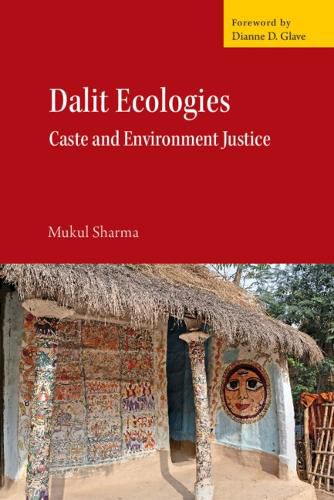Readings Newsletter
Become a Readings Member to make your shopping experience even easier.
Sign in or sign up for free!
You’re not far away from qualifying for FREE standard shipping within Australia
You’ve qualified for FREE standard shipping within Australia
The cart is loading…






Dalit Ecologies explores the ecological experiences, histories, and perspectives integrated within Dalit writing, art, and culture. Aligning with theories of environment justice and ecological struggles experienced by Black populations, the book delves into six major themes: caste, earth and earthly environment, labour, and mobility, casteization of technology and industry, climate justice, Dalit Bahujan Anthropocene, and eco-literary tradition. It looks at the relationship between caste and environment, Dalit autobiographies, folktales and novels, city, waste and discard, caste-based industry and occupation, technological injustice, weather, caste and climate change, and Black-Dalit ecologies. Expanding the boundaries of environmental studies, the book brings attention to individuals like Adwaita Mallabarman, Bama, Nek Chand and Deena-Bhadri on the one hand, and specific places and arenas like the rock garden, tannery, brick kiln, steel industry, and sanitation on the other.
$9.00 standard shipping within Australia
FREE standard shipping within Australia for orders over $100.00
Express & International shipping calculated at checkout
Dalit Ecologies explores the ecological experiences, histories, and perspectives integrated within Dalit writing, art, and culture. Aligning with theories of environment justice and ecological struggles experienced by Black populations, the book delves into six major themes: caste, earth and earthly environment, labour, and mobility, casteization of technology and industry, climate justice, Dalit Bahujan Anthropocene, and eco-literary tradition. It looks at the relationship between caste and environment, Dalit autobiographies, folktales and novels, city, waste and discard, caste-based industry and occupation, technological injustice, weather, caste and climate change, and Black-Dalit ecologies. Expanding the boundaries of environmental studies, the book brings attention to individuals like Adwaita Mallabarman, Bama, Nek Chand and Deena-Bhadri on the one hand, and specific places and arenas like the rock garden, tannery, brick kiln, steel industry, and sanitation on the other.